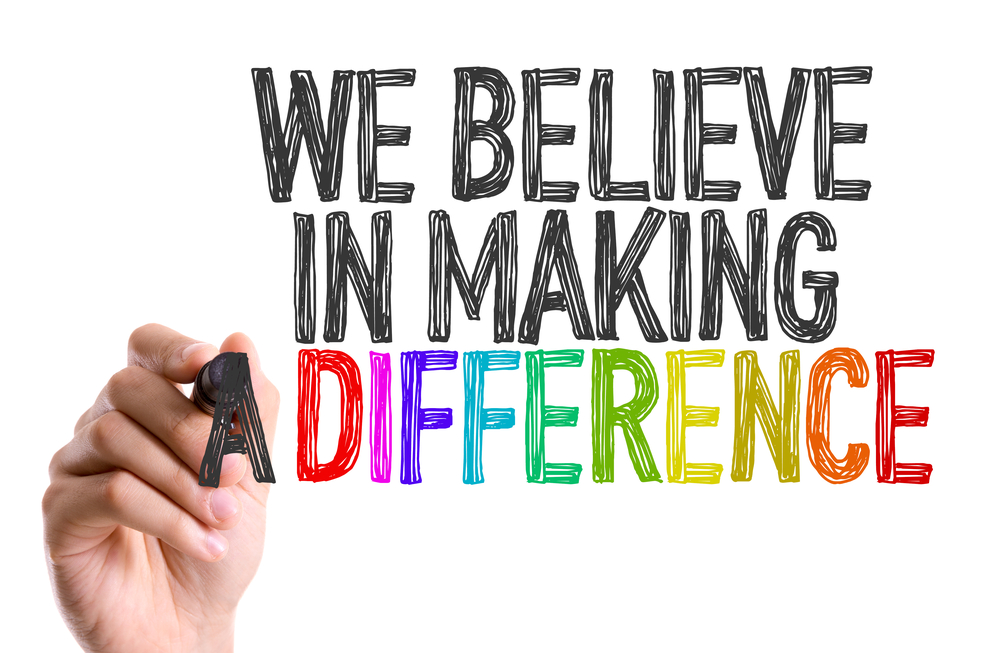Adapting CBT for Justice-Involved Clients - Check out the Blog Series!
Posted by Raymond Chip Tafrate, PhD, Damon Mitchell, PhD, & David J. Simourd, PhD on 3/13/20 6:00 AM
Topics: Assessment, Community Corrections Professional, Addiction, Relapse Prevention, client development, Developing a practice model, coaching community corrections clients, reentry, client needs and values, risk, EBP, Justice-Involved Clients, jic
How Full is Your Bucket?
Posted by Lisa Sayler on 12/6/19 12:24 PM
“I don’t get a candy bar every time I do my job, why should a client get something for doing what they are already supposed to do?” Have you ever thought or heard something like this when discussing positive reinforcement with clients in community corrections? When research shows positive reinforcement is more effective in long term behavior change, why is it that we tend to default to punish only?
In my experience managing clients, managing staff, being a mother, wife, mentor and coach, I can attest that it can be easier to sigh, moan and complain about the performance of others. Every time I find myself pulling out my hair, I realize I haven’t been using one of my best tools, positive reinforcement. And guess what, when I start using it (or increase my use of it), I see improvement and I feel happier. It is all too easy to only notice what is going wrong and completely pay no attention to what is going right.
Let me offer some tips for success when implementing a positive reinforcement program in your agency.
Read MoreTopics: Community Corrections, Evidence Based Practices, Positive Reinforcement, Community Corrections Professional, client development, reentry, EBP, Justice-Involved Clients
What IS Community Corrections?
Posted by Lisa Sayler on 5/9/19 11:41 PM
When you hear the words Community Corrections what is the first thing you think of?
As a Community Corrections veteran of a residential program in Colorado, when someone asks me what community corrections is…my first response is, you may have heard it called a “halfway house”. And very egocentrically, I assumed that’s what it meant for everyone who said, “community corrections”. While I worked alongside probation and parole previously, when I started to work for CorrectTech I learned much more about what community corrections first means to others in the field and some minor differences and similarities in all the different shapes, sizes, and flavors of community corrections. I found it very interesting…maybe you will too.
Read MoreTopics: Community Corrections, Community Corrections Professional
Kickstarting a Coaching Session
Posted by Evan C. Crist, Psy.D. on 7/6/18 11:08 PM
The first question in The Coaching Habit: Say Less, Ask More and Change the Way You Lead is known as The Kickstart Question: “What’s on your mind?” I think it is a near perfect way to start a therapeutic session with any client. Most managers now know that coaching is valuable and proven, but many do not attempt coaching because they do not know how to start. Opening statements such as, “How’s it going?”, “I just wanted to check with you on how the new position is going.”, or, my personal favorite, “Is there anything I can do for you?” are a bit like passing someone in the hallway and greeting them with, “How are you?” Each of the above openings begs for a brief response that “all is well.” The answer is reflective and social norms generally suggest that answering the question with real life concerns is inappropriate. People will quickly learn to stop asking that question if you really answer. Hopefully, therapy and/or case management is different but old habits die hard.
Read MoreTopics: Community Corrections Professional, Listening Skills, The Coaching Habit, Community Corrections Client Services, Developing a practice model, Evan C. Crist, Switch by the Heath Brothers, what's on your heart, coaching community corrections clients, reaching clients emotions
The T's and C's : No Longer the ABC's in Community Corrections
Posted by Lisa Sayler on 4/26/18 12:21 PM
Community Corrections is Changing...Are You?
Change is hard. We expect our clients to change but when faced with change ourselves, we can often resist. We expect someone who has lived a certain way for 20, 30, 40+ years to make abrupt changes but when we give up sweets and our colleague brings donuts in, we gobble them down and vow that was the last time. We get a speeding ticket and vow to not speed anymore but once the initial sting has worn off, we look down and notice we are going 40 in a 30 and didn’t even realize it. It’s so much easier for people to change when it’s not us. It takes a lot of practice, new habits and even failure, to change. Sure, there is a valid difference, if an offender doesn’t change criminal behavior, there are serious consequences to their freedom, not just to their waistline or pocket book. But if those consequences were all it took; community corrections might not exist.
Community Corrections is changing. The change has been in the works ever since the early “what works” and “EBP” research pointed us to new approaches. What is different now is the change is hitting closer to home to the daily routines, decision making and programming. We know this through our conversations with practitioners all around the country and many in some of the most progressive states in community corrections, who are looking for support in meeting new and existing requirements from oversight agencies. While many in the field are excited about the changes, others are left feeling anxious, frustrated and resistant to change. Just like many of our clients feel upon entering a program. While it is easier not to change our own practices, we must continue to try new approaches and work to improve long term results. It doesn’t mean we don’t hold our clients accountable, it means we expand and adapt our approach and learn we have other tools in our toolbelt. People, even community correction professionals, must be held accountable to change in ways that move towards improved results.
Read MoreTopics: Community Corrections, Evidence Based Practices, Motivational Interviewing, Community Corrections Professional, Change, what works, responsivity, impact sessions, intrinsic motivation, client development
Subscribe To Our Blog
Recent Posts
Posts by Topic
- Community Corrections (61)
- Evidence Based Practices (44)
- Community Corrections Professional (23)
- Software (15)
- Practices (12)
- Change (11)
- Technology (10)
- Risk Principle (8)
- reentry (8)
- probation staff (7)
- EBP (6)
- Outcomes (6)
- client development (6)
- client needs and values (6)
- coaching community corrections clients (6)
- Assessment (5)
- Community (5)
- Developing a practice model (5)
- Justice-Involved Clients (5)
- Remote work (5)
- The Coaching Habit (5)
- parole (5)
- risk (5)
- tele-supervision (5)
- tele-work (5)
- Community Engagement (4)
- Evan C. Crist (4)
- Community Corrections Client Services (3)
- Criminal Justice Reform (3)
- Implementation (3)
- Listening Skills (3)
- Motivational Interviewing (3)
- Policy (3)
- Positive Reinforcement (3)
- Practice Models (3)
- high risk client (3)
- reaching clients emotions (3)
- responsivity (3)
- Addiction (2)
- BOP (2)
- Conferences (2)
- ICCA (2)
- Management (2)
- Michael Bungay Stanier (2)
- Relapse Prevention (2)
- halfway house (2)
- jic (2)
- principles (2)
- procedures (2)
- program results (2)
- APPA (1)
- Appreciative Thinking (1)
- Brian Lovins (1)
- COVID-10 (1)
- Community Connection (1)
- Coronavirus (1)
- Crisis (1)
- Customer Service (1)
- Data Management (1)
- Fidelity (1)
- ICCA Seattle (1)
- Juvenile Corrections (1)
- Leadership (1)
- Monitor History (1)
- Opioid Addiction (1)
- Opioid Crisis (1)
- Orange is the New Black (1)
- Program Data (1)
- Reforms (1)
- Relapse (1)
- Second Chances (1)
- Switch by the Heath Brothers (1)
- Treatment (1)
- drug testing (1)
- going paperless (1)
- govcio outlook (1)
- impact sessions (1)
- innovation (1)
- intrinsic motivation (1)
- justice reinvestment (1)
- marijuana testing (1)
- money savings (1)
- opiod testing (1)
- paperless office (1)
- purpose (1)
- remote working (1)
- resources (1)
- sanction (1)
- staff productivity (1)
- technology solutions provider (1)
- the awe question (1)
- what works (1)
- what's on your heart (1)
- work from home (1)







